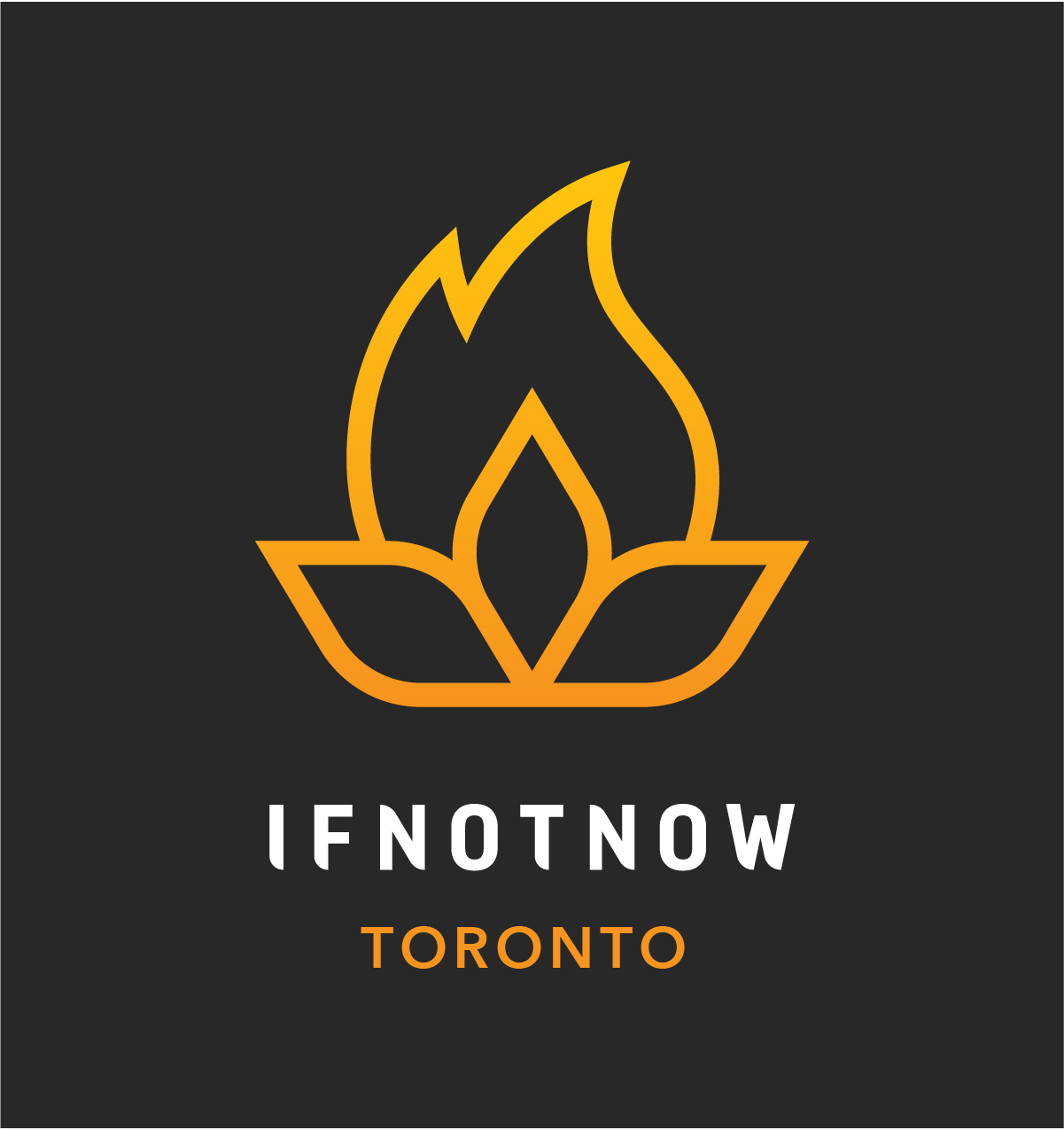As members of IfNotNow Toronto, a local chapter of a Jewish movement working to end our community’s support for the Israeli occupation, we do not believe that increased police budgets are the solution to rising antisemitism in our city.
In the wake of antisemitic incidents, like the recent arson of International Deli Foods, Toronto’s Jewish community is on edge. The fear is understandable given the historical trauma that Jews carry and the persecution we have faced. Is the apparent targeting of this Jewish-owned business, and its resonance with the European pogroms of the past, a sign of things to come? This is certainly being contemplated by many of Canada’s legacy Jewish institutions, who are today lobbying for continued investment in Toronto police budgets.
The Toronto Police Services (TPS) is in lock-step, citing a rise in antisemitism in their appeal for increased funds.
However, we know that true safety for Jewish people will only come from meaningful solidarity with other marginalized groups. We must reject the false belief that our safety is contingent on seeking protection from institutions of power.
Historically, this is how Jews gained conditional admittance into societies as moneylenders and merchants. Our ancestors insulated their families from antisemitism and gained a measure of financial security by making themselves indispensable to powerful people.
In the second half of the twentieth century, after the horrors of WWII, a deeper inclusion was dangled: in exchange for assimilation, European Jews could become white. While previously considered their own racial group – largely poor, marginalized, and culturally separate – newly white Jews rapidly gained social mobility and integrated into Western society. Along with whiteness came absorption into a white supremacist society which had previously victimized them. The Toronto police – who infamously made only one conviction following the antisemitic riot at Christie Pits park – were suddenly “on our side.”
With this confluence of factors whirling in the background, it is no surprise that Jewish institutions such as B’nai Brith and the Centre for Israel and Jewish Affairs (CIJA) have come to work closely with police, especially following October 7. However, real safety and security for Jews requires forging connection with, not separateness from, communities that experience discrimination.
Today, antisemitism often functions as a “wedge oppression” — dividing Jews from groups who would be our natural allies. When the second sentence in the TPS “Robust Response to Hate-Motivated Crime” statement describes police presence at “demonstrations and gatherings… some with more than 25,000 participants”, we know who they’re implying are responsible for rising hate — Pro-Palestinian protestors, many of whom are racialized and targets of Anti-Arab and Anti-Palestinian racism. Meanwhile, white nationalist organizing goes unmentioned.
Antisemitism can flourish anywhere, but as Jewish people, we categorically reject that the fight for Palestinian liberation is antisemitic. The driving force of protests flooding Toronto’s streets is not antisemitism but moral outrage at Israel’s unjustifiable actions in Gaza.
Antisemitism is a pretext for the police, who, with each budget amendment, routinely claim they need more funds. It concerns us that with this ‘blank check’ to fight anti-Jewish hate, their need for ‘results’ will incentivize more militarized actions against protestors – such as the night-time raids we’ve already seen – and will have an outsized impact on racialized communities.
IfNotNow is a Jewish movement working to end our community’s support for the Israeli occupation. We believe true safety for Jews comes through collective liberation achieved by social, political, and financial investment in communities, and through building relationships of solidarity with other oppressed peoples, including our Palestinian cousins. For white and white-passing Jews, part of coalition building with racialized groups inevitably means examining what we are going to do with the privilege we have — and asking ourselves how much we’re willing to put on the line to disrupt the white supremacy culture we have benefitted from. It will not be found through a false ‘coalition’ with the police, who have opportunistic reasons to trumpet the cause of antisemitism.



